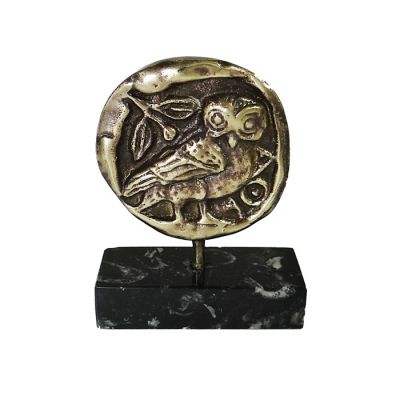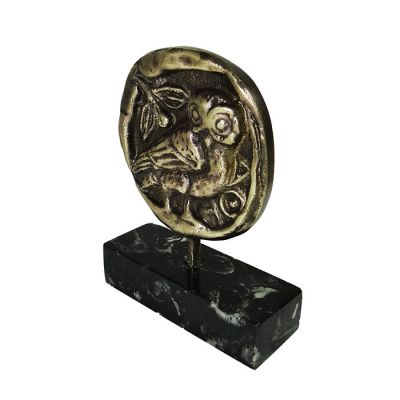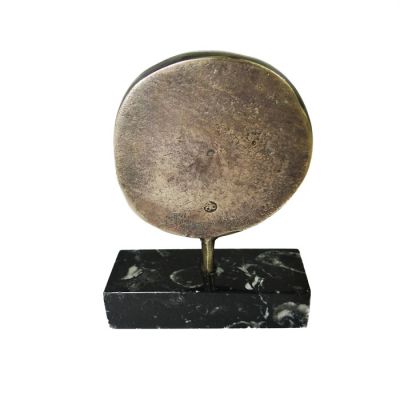The owl was the symbol of wisdom in Ancient Greece and the sacred bird of Goddess Athena. The bird was also called glaux. In Ancient Athens, the reverse side of the tetradrachm of Athens, also known as the athenian glaux, depicted an owl and an olive branch with an inscription (ΑΘΕ). Inspired by the ancient coin, we created a brass relief represntation.
Dimensions: 7 cm x 9 cm x 3,5 cm
Dimensions of the marble base: 7 cm x 2 cm x 3,5 cm
All prices include VAT.
In Greek mythology, the owl has been used as a symbol of knowledge and wisdom, because it was the sacred bird of the virgin goddess of wisdom and the patron of the city of Athens, Athena. A little owl (Athene noctua) traditionally represented or accompanied Athena. As the symbol of Athena, the owl was a protector, accompanying Greek armies to war, and providing ornamental inspiration for their daily lives. If an owl flew over greek soldiers before a battle, they took it as a sign of victory. Owls were commonly reproduced by Athenians in vases and prize amphoras for the Panathenaic Games.
The most common depiction of the owl is on the silver tetradrachm of Athens (449-419 BC), which was the most widely used coin throughout Greece in the heyday of Athens in the 5th BC century. It was used in trade throughout the Greek world. The ancient Athenians chose on the obverse of the coin to depict the owl (glauka) with an olive branch and the inscription ΑΘΕ. This coin was better known simply, as the Athenian owl (glaux).
This coin is exhibited at the Numismatic Museum in Athens. Many centuries later, the Athenian owl of the tetradrachm is illustrated again on the Greek coin of one euro.
No posts found











